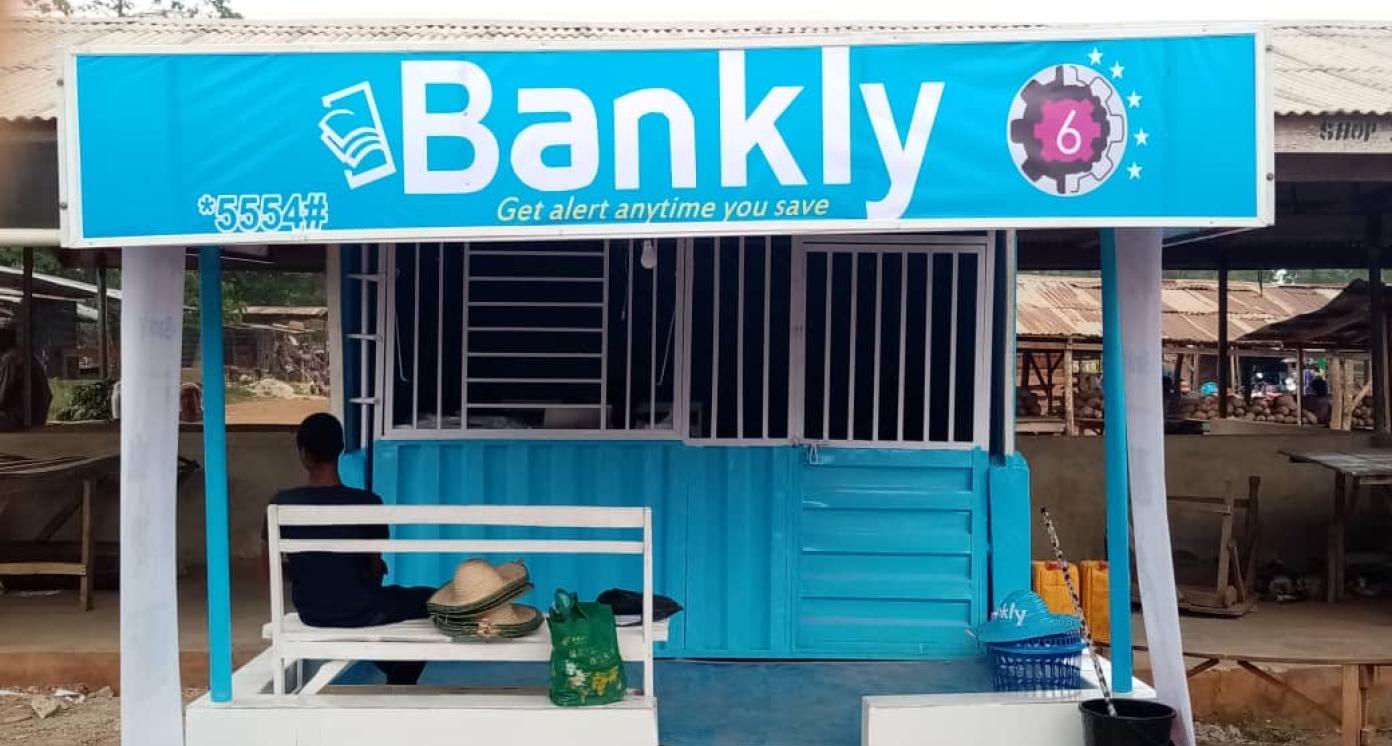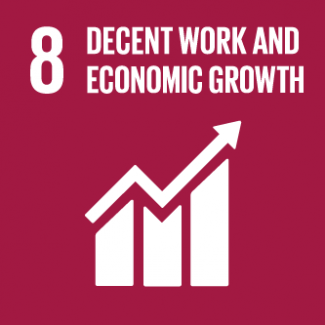The Nigerian population faces multiple challenges preventing them to access proper financial services, such as lack of steady income, limited historical business data or documentation (such as identification), complexity and cost of opening and running a bank account and limited financial literacy. Consequently, individuals and micro entrepreneurs face reduced earnings potential due to cash sales only, and are exposed to the high risk and security challenges of cash payments. As a result, 50 million people, about half of the Nigerian adult population, do not have or have limited access to financial services (see here). This stands for an estimated market value of USD 3.3 billion. Moreover, 14.6% are regarded as underbanked and 36.8% as unbanked.
Founded in 2018 and based in Lagos, BANKLY, a Central Bank of Nigeria licensed payment service provider and microfinance bank, addresses issues related to financial inclusion. The company’s inclusive solution features user-friendly guides and leverages community ambassadors to train and onboard users. BANKLYs’s customer application provides transparency and security for group savings and integrates the necessary controls and Artificial Intelligence-powered tools to protect users from potential fraud.
BANKLY’s service offer includes:
- Payment service provider, supplying a full suite of payment options for retail merchants through Point-of-Sale infrastructure.
- Banking and infrastructure, through their “Banking as A Service (BaAS)”, BANKLY integrates a complete banking infrastructure and instant payments (NIP) for individuals and merchants. The company’s vision is to be the “bank to the unbanked,” meeting the needs of the financially excluded by providing the personal and technological touchpoints they need.
To date, BANKLY:
- Contributed to creating employment and growth for over 40,000 direct agents and micro entrepreneurs;
- Provided working capital loans of up to USD 500,000 to small businesses;
- Served over 6 million individuals in underserved communities in 2022 with transaction value of more than USD 300 million;
- Empowered 16,000 women micro entrepreneurs, providing them with free payment devices as well as working capital;
- Piloted savings and group savings products in a public beta that saw over 150,000 users test the service.
The company has raised USD 250,000 in a pre-seed round in 2019 and an additional USD 2 million as seed funding in 2021. Currently, BANKLY is looking to raise USD 4 million in equity and debt. By 2025, the company aims to financially include 2 million Nigerians, by protecting their income while creating required access to affordable credit/insurance and equip 150,000 merchants with tools to accept digital payments and working capital. BANKLY also plans to target new markets in Cameroon, Benin and Democratic Republic of Congo by leveraging their current partnerships to provide infrastructure and regulatory support in the markets their partners already operate. Additionally, the company is also looking for partnerships to drive financial inclusion through its digital platform and through their android based smart Point-of-Sale phones designed for micro businesses.
BANKLY is a finalist of the EU-UNDP’s Growth Stage Impact Ventures (GSIV) in Nigeria, in the services sector. The GSIV takes the Nigeria SDG Investor Map one step further by identifying through a highly competitive process enterprises in Nigeria that have developed at-scale products and services that contribute to the SDGs while achieving commercial success and are committed to embed impact considerations into decision-making. By putting the spotlight on and supporting these ventures, UNDP aims to bring forward evidence of the existence of pipelines of investable ventures that can advance the transition to SDG-aligned investments in Nigeria and more broadly, in Africa.
Learn more and get in touch with BANKLY: www.bankly.ng

















